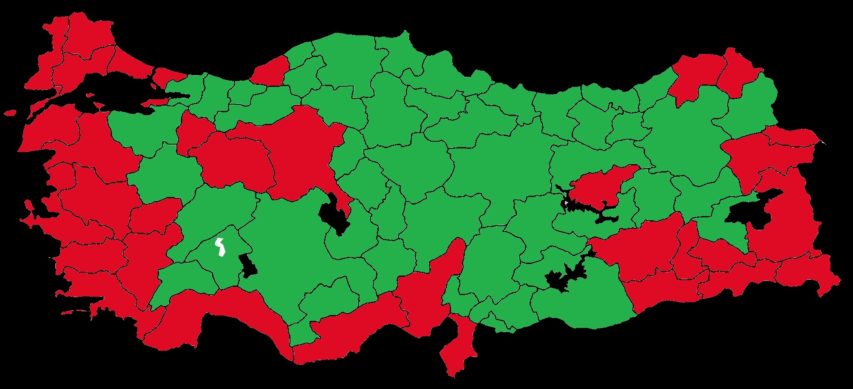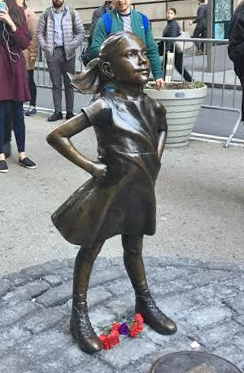The secular Turkish Republic is fading fast, as the results of the Turkish referendum amount to a concentration of vast powers in the hands of Recep Tayyip Erdoğan. We sometimes joke that Vladimir Putin is the new Tsar, but it’s less funny to refer to Erdoğan as the new Sultan … because it’s much closer to being true:
On Jan. 20, 1921, the Turkish Grand National Assembly passed the Teşkilât-ı Esasîye Kanunu, or the Law on Fundamental Organization. It would be almost three years until Mustafa Kemal — known more commonly as Ataturk, or “Father Turk” — proclaimed the Republic of Turkey, but the legislation was a critical marker of the new order taking shape in Anatolia.
The new country called Turkey, quite unlike the Ottoman Empire, was structured along modern lines. It was to be administered by executive and legislative branches, as well as a Council of Ministers composed of elected representatives of the parliament. What had once been the authority of the sultan, who ruled alone with political and ecclesiastic legitimacy, was placed in the hands of legislators who represented the sovereignty of the people.
More than any other reform, the Law on Fundamental Organization represented a path from dynastic rule to the modern era. And it was this change that was at stake in Turkey’s referendum over the weekend. Much of the attention on Sunday’s vote was focused on the fact that it was a referendum on the power of the Turkish presidency and the polarizing politician who occupies that office, Recep Tayyip Erdogan. Yet it was actually much more.
Whether they understood it or not, when Turks voted “Yes”, they were registering their opposition to the Teşkilât-ı Esasîye Kanunu and the version of modernity that Ataturk imagined and represented. Though the opposition is still disputing the final vote tallies, the Turkish public seems to have given Erdogan and the AKP license to reorganize the Turkish state and in the process raze the values on which it was built. Even if they are demoralized in their defeat, Erdogan’s project will arouse significant resistance among the various “No” camps. The predictable result will be the continuation of the purge that has been going on since even before last July’s failed coup including more arrests and the additional delegitimization of Erdogan’s parliamentary opposition. All of this will further destabilize Turkish politics.
[…]
The AKP and supporters of the “yes” vote argue that the criticism of the constitutional amendments was unfair. They point out that the changes do not undermine a popularly elected parliament and president as well as an independent (at least formally) judiciary. This is all true, but it is also an exceedingly narrow description of the political system that Erdogan envisions. Rather, the powers that would be afforded to the executive presidency are vast, including the ability to appoint judges without input from parliament, issue decrees with the force of law, and dissolve parliament. The president would also have the sole prerogative over all senior appointments in the bureaucracy and exercise exclusive control of the armed forces. The amendments obviate the need for the post of prime minister, which would be abolished. The Grand National Assembly does retain some oversight and legislative powers, but if the president and the majority are from the same political party, the power of the presidency will be unconstrained. With massive imbalances and virtually no checks on the head of state, who will now also be the head of government, the constitutional amendments render the Law on Fundamental Organization and all subsequent efforts to emulate the organizational principles of a modern state moot. It turns out that Erdogan, who would wield power not vested in Turkish leaders since the sultans, is actually a neo-Ottoman.
Mark Steyn says “I told you so”:
As they used to say way back when in the long Ottoman twilight, the Turk is the sick man of Europe. Following this weekend’s Caliph-for-Life referendum, the Turk is sicker than ever. But he’s no longer of Europe, and instead is exiting for a destination dark and catastrophic for almost all his neighbors.
Sultan Erdoğan – who, a mere 15 years ago, was banned from holding political office – has now succeeded in dismantling almost every defining element of the Kemalist republic. What replaces it will be a crude strongman state in service of Islamic imperialism. I have read a lot of commentary this morning, starting with Douglas Murray’s “Turkish Democracy Has Just Died” and moving on to Yavuz Baydar’s “The End Of Turkey As We Know It” via Alex Alexiev’s “Who Lost Turkey?” And several readers have been kind enough to inquire where’s my own “Who Lost Turkey?” piece. Well, the truth is I published it exactly ten years ago, to the day of Erdoğan’s referendum. From the April 16th 2007 edition of National Review, “De-Boning Turkey“:
The modern secular Muslim state – a country that gave women the vote before Britain did and was Israel’s best friend in an otherwise hostile region – certainly, that Turkey seems to be being de-boned by the hour: it now has an Islamist government whose Prime Minister has canceled trade deals with Israel, denounced the Iraqi elections, and frosted out the US Ambassador because he was Jewish; a new edition of Mein Kampf is prominently displayed at the airport bookstore. In other words, the Zionist Entity’s best pal is starting to look like just another cookie-cutter death-to-the-Great-Satan stan-of-the-month.
In fairness to the new Caliph, ever since he emerged from his semi-pro footballing career to run for Mayor of Istanbul, he’s played a more cunning game than the stan-of-the-month loons. As he said in one of his most famous soundbites, democracy is a bus you ride to the stop you want – and then you get off. And he was quite happy to take the scenic route, stop by stop by stop. In the two or three years after he came to power, I was assured that he was a “moderate Islamist” not merely by the all the foreign-policy think-tank “experts” but even by his political rivals in the previous Kemalist government. […]
Here’s a third graphic – yesterday’s referendum results. The Kurdish south-east, the old secular Rumelian west – and in between the vast green carpet of a new post-Kemalist caliphate:

Turkish referendum results, “yes” voting areas in green, “no” in red.
Overlay the fertility rates on the electoral results: demography proved destiny. As you’ll recall, Kemal Atatürk was born Mustafa Kemal. The new moniker was a title bestowed on him by the post-Ottoman parliament. Atatürk means “Father of the Turks”. Alas, he wasn’t father of enough of them. And the men who were had other ideas about Turkey’s future. We’ve all met charming, urbane, witty, secular Turks. I worked with one recently, and enjoyed his company immensely. But on that ever expanding big green Islamic carpet from east to west there’s no place for them.







